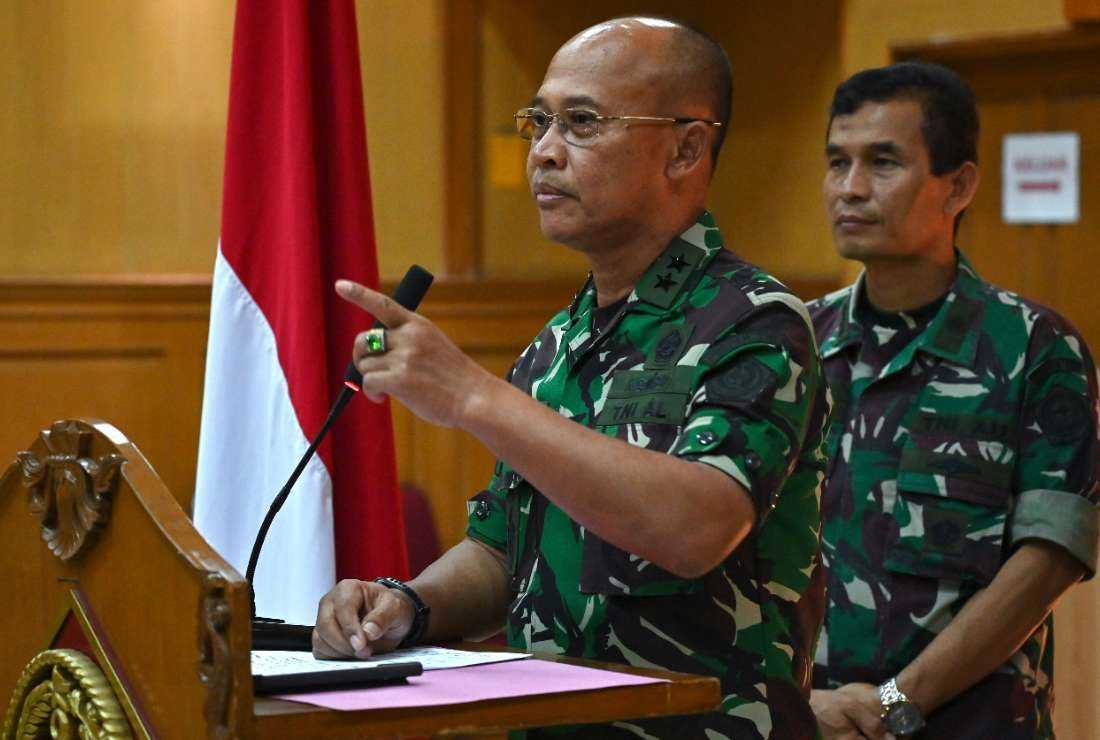
Group of soldiers was deployed to search for a New Zealand pilot kidnapped by rebels at Nduga airport in February

Indonesian military spokesman Julius Widjojono (left) speaks during a press conference at the military headquarters in Jakarta on April 16. (Photo: AFP)
Armed separatists ambushed a group of Indonesian soldiers searching for a kidnapped New Zealand pilot in the Papua region, killing at least one, the army said Sunday.
Indonesia's military said the group was scouring the remote, hilly Nduga district on Saturday when gunmen opened fire, leaving at least one soldier dead.
The soldiers were part of a group deployed to search for Phillip Mark Mehrtens, a pilot for the Indonesian airline Susi Air who was kidnapped by the rebels at Nduga airport in February.
"The condition of the other soldiers who are spread in several locations is still unknown," Indonesian military spokesman Julius Widjojono told a press conference Sunday.
The West Papua National Liberation Army (TPNPB), the military wing of Papua's main separatist group, claimed responsibility for the attack and said they had killed nine soldiers.
The rebels had previously demanded that Indonesia recognise Papuan independence in return for the pilot's release, as well as a meeting with President Joko Widodo facilitated by the international community.
TPNPB said Saturday's attack was an act of defence against the military activity in the region and demanded the government instead negotiate for Mehrtens' release.
"The United Nations and the New Zealand government have an obligation to push Indonesia to stop the military operation," the rebels' spokesman Sebby Sambom said Sunday.
Flying is the only way to reach the mountainous areas in Papua, where rebel attacks have risen in recent years.
Papua's Melanesian population shares few cultural connections with the rest of Indonesia and the military has long been accused of gross human rights abuses there.
A former Dutch colony, Papua declared itself independent in 1961, but neighbouring Indonesia took control two years later, promising an independence referendum.
The subsequent vote in favour of staying part of Indonesia was widely considered a sham.
Help us keep UCA News independent
The Church in Asia needs objective and independent journalism to speak the truth about the Church and the state.
With a network of professionally qualified journalists and editors across Asia, UCA News is just about meeting that need. But professionalism does not come cheap. We depend on you, our readers, to help maintain our independence and seek that truth.
A small donation of US$2 a month would make a big difference in our quest to achieve our goal.

Share your comments